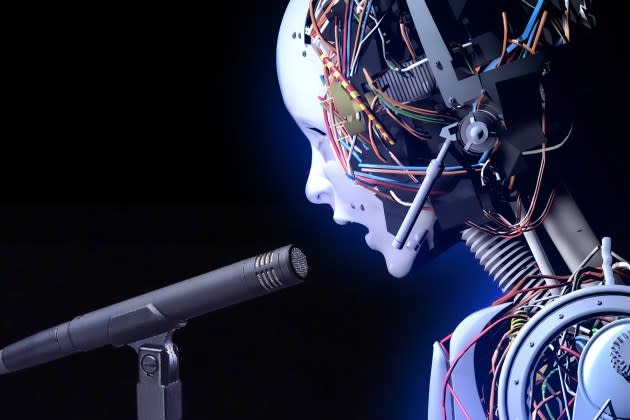The World’s Largest Music Company Is Helping Musicians Make Their Own AI Voice Clones

Universal Music Group announced a partnership with an AI music tech startup called SoundLabs on Tuesday, with the largest music company in the world set to use the deal to offer AI voice model tech to its roster in the coming months.
UMG’s artists and record producers will be able to use SoundLabs’ upcoming feature called MicDrop starting later this summer, and as the companies said in their announcement, the platform allows the artists to make voice models of their own using data the artists provide. SoundLabs gives the artists control over the ownership and use of the voice models, the companies said, and the voice clones won’t be made accessible to the general public.
More from Rolling Stone
Music Publishers File FTC Complaint Against Spotify for 'Fraudulent Business Practices'
Ticketmaster Acknowledges Data Breach After Hacker Claimed Stealing Info From 560 Million Customers
Aside from merely making a copy of a voice, MicDrop purports to offer a voice-to-instrument function, similar to the features that can make keyboards sound like a guitar or drum. MicDrop also offers language transposition, the company said, which could help artists release songs around the world without a language barrier.
AI voice clones have become perhaps the most well-known — and often the most controversial — use of artificial intelligence in the music business. Viral tracks with AI vocals have spurred legislation to protect artists’ virtual likenesses and rights of publicity.
Last year, an anonymous songwriter named Ghostwriter went viral with his song “Heart On My Sleeve,” which featured AI-generated vocals of UMG artists Drake and The Weeknd. The song was pulled from streaming services days later following mounting pressure from the record company. Ironically, Drake got caught in a voice cloning controversy of his own a year later when he used a Tupac voice clone on his Kendrick Lamar diss track “Taylor Made Freestyle.” Tupac’s estate hit the rapper with a cease-and-desist in April, and the song was subsequently taken down.
AI remains one of the most pressing issues in the music industry, as fast-developing AI music generation companies are attracting both buzz and major VC dollars. The music industry’s largest stakeholders have been cautious but also voiced interest in the use of AI music tools as long as they’re employed ethically, and in ways that respect artists’ copyrights and their virtual likeness.
UMG recently published its Principles for Music Creation With AI alongside instrument manufacturer Roland to further define ethical use of AI in music. Last year the RIAA introduced the Human Artistry Campaign, advocating for a similar approach to AI.
The clearest example so far of the labels’ ethos is Randy Travis’s most recent single “Where That Came From.” That track used the vocals of singer James Dupré to resurrect Travis’s voice for his first new recording since Travis lost his singing ability from a near-fatal stroke over a decade ago. Warner Music Nashville, the label behind “Where That Came From” told Rolling Stone that Dupre was credited as the “vocal bed” on the song, the first time they ever used such designation on a recording the label had released.
SoundLabs was founded by the Grammy-nominated electronic composer and software developer BT, who has previously worked with artists including Madonna, Death Cab for Cutie, Sting and David Bowie among others. Both BT and UMG further emphasized the importance of ethical AI use in their announcement Tuesday.
“We believe the future of music creation is decidedly human,” BT said in a statement. “Artificial intelligence, when used ethically and trained consensually, has the promethean ability to unlock unimaginable new creative insights, diminish friction in the creative process and democratize creativity for artists, fans, and creators of all stripes.”
As UMG’s SVP of Strategic Technology Chris Horton said: “UMG strives to keep artists at the center of our AI strategy, so that technology is used in service of artistry, rather than the other way around. We are thrilled to be working with SoundLabs and BT, who has a deep and personal understanding of both the technical and ethical issues related to AI.”
Best of Rolling Stone
